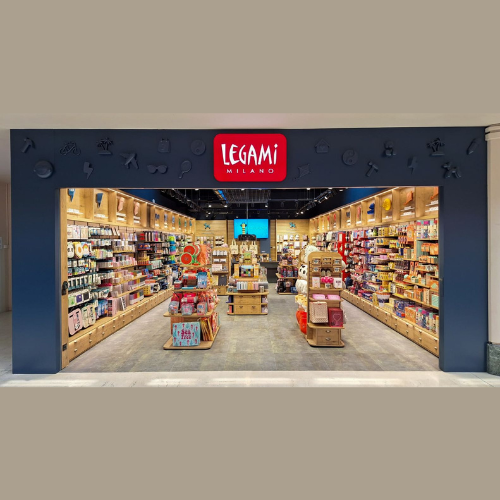Greetings Card Association (GCA) call to action as Royal Mail raised cost to £1.65 after Ofcom recommendations.
The greeting card industry has erupted with fury at Royal Mail’s announcement of a 22% increase in the price of a first-class stamp to £1.65 just a day after Ofcom recommended cutting Saturdays out of the second-class delivery schedule.
As Royal Mail moves its focus to the more profitable parcel side of the business, the inflation-busting rise has been met with condemnation from across the card industry as well as the public, and the Citizens Advice charity.
Despite the current annual inflation rate being just 2.9%, the lowest since March 2021, Royal Mail has blamed the enormous increase on the “significant” cost of running the universal service obligation of its six-day same price goes anywhere in the UK deliveries.
However, it is currently keeping second class post at the 85p figure which it rose to on April 2 when first class prices also rose by 10p to £1.35 – already almost double the 2019 price of just 70p, prior to this latest increase.
“Despite attempts by Royal Mail’s PR team to frame this as necessary to ‘protect the one-price-goes-anywhere service’, the numbers tell a different story,” GCA council Royal Mail lead and Cardology co-owner David Falkner said, expressing the association’s “deep concern” over the significant risks to both the industry and consumers.
He added: “As recently as May, Royal Mail announced that its letter revenues had increased by 4.4% last year, driven largely by prior price hikes. Stamped letter revenue, in particular, saw a marked increase 0f 14.2%, raising doubts about the need for another steep price rise.”

Citizens Advice director of policy Tom MacInnes said: “This price increase couldn’t be coming at a worse time for consumers, who will now be paying more than double the price of a first-class stamp compared to five years ago.
“Royal Mail is choosing to hike prices far beyond the rate of inflation at a time when millions continue to miss important letters, as a result of post delays. People shouldn’t be having to fork out more while experiencing such poor service
“Ofcom should be holding Royal Mail to account, but it’s letting the company get away with setting rocketing prices in the wake of half a decade of missed delivery targets. We need the regulator to make sure reforms of our postal service put the needs of consumers first – not Royal Mail’s bottom line.”
The charitable organisation’s data shows 7.2million people experienced a delay in sending or receiving letters this spring with 1.4 million people facing serious consequences including missing health appointments, legal documents, fines and benefit decisions.
Making the price increase announcement late on Thursday, 6 September, Royal Mail said the way people communicate has changed so letter volumes have fallen from 20 billion in 2004/5, an average of 14 per week per household, to around 6.7bn a year in 2023/4, just four letters per week for the average household while the number of addresses to which RM Royal Mail must deliver has risen by four million in the same period.
The delivery service says prices are still below European averages of £1.73 and £1.33 respectively, having calculated prices across 29 countries in July.
Nick Landon, chief commercial officer at Royal Mail, said: “We always consider price increases very carefully. However, when letter volumes have declined by two-thirds since their peak, the cost of delivering each letter inevitably increases.
“A complex and extensive network is needed to get every letter and parcel across the country for a single price – travelling on trucks, planes, ferries and, in some cases, drones before it reaches its final destination on foot. We are proud to deliver the universal service, but the financial cost is significant.
“The universal service must adapt to reflect changing customer preferences and increasing costs so that we can protect the one-price-goes-anywhere service, now and in the future.”
However, David added: “It’s no surprise that social media is once again flooded with frustrated consumers who are both angry and disappointed. The public’s dissatisfaction with Ofcom’s decision and the poor service from Royal Mail is palpable, and it reflects a growing sense of disillusionment with how these vital services are being managed.”
An impassioned Heidi Early, co-owner of Earlybird in Stoke Newington and one of the retailers at the GCA roundtable last month discussing how to boost Christmas card sending, demanded to know why Royal Mail doesn’t increase parcel prices as “30p on a parcel would make a significant difference to revenue”.
Heidi added: “Royal Mail is being allowed to kill off a vital public service, its management and Ofcom should hang their heads in shame – the ripple effects of their decisions and inaction could be catastrophic.
“I have customers saying they would send more cards but the post is now too bloody expensive and they don’t even know if the card will arrive as service is so patchy.
“The price of a first-class stamp has increased by 117% in four years and yet service levels have fallen, and Royal Mail’s rhetoric is that the USO is killing it as a business. I’d suggest it looks at its management before blaming the poor lowly postal service!”
“RM keeps saying it has to increase it this much because it has a massive hole in its finances and the public doesn’t send letters anymore, how we communicate has changed it keeps saying – actually, I think they’ve just gone deaf!
“Of course how we communicate, especially on a business level, has changed. But sending cards hasn’t changed. The greeting card industry is a growing, thriving £1.5billion industry, people still send and post cards. In fact, they’re even more important in our digital age. And when times are tight people might cut back on presents but they still send cards.”

























